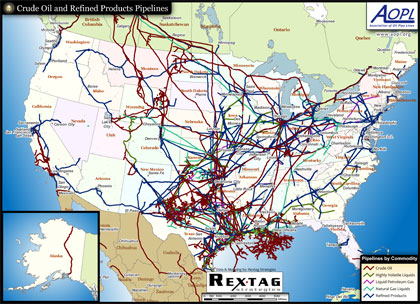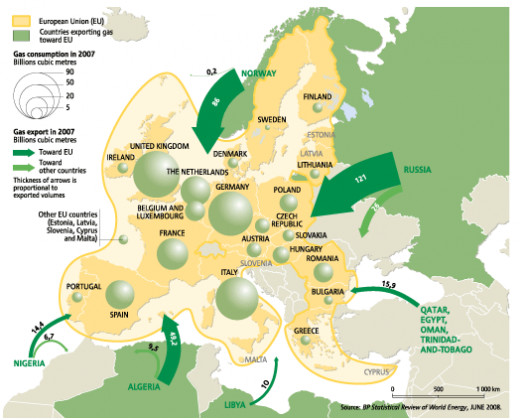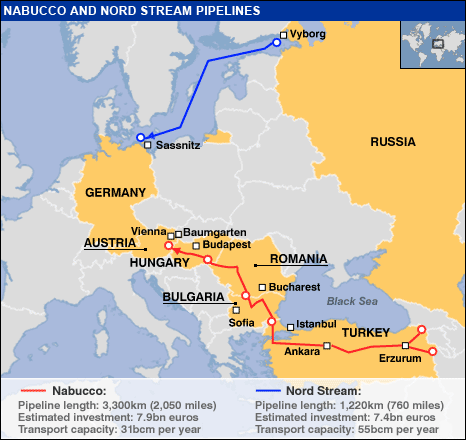Russia in late 2013
Commentary and Hearsay
Granted, one cannot understand a subject as large and forbidding as the Russian Federation in late 2013 by reading a book, but it is about all a non-professional can do. Truthfully, it makes for an okay start. There are no Russian education support groups at the local library, and the churches and synagogues sure do not want to disinterestedly and intellectually grapple with so emotional a topic. The Russians are the bad guys; it is that simple. It says so in the bible, just read it, and interpret along strict, non-negotiable lines. And yet, despite being smack dab in the middle of an information age, this huge and influential country remains aloof, mysterious, and difficult to analyze. All that is truly known is that it does not rubber stamp the United States. It will not see eye to eye with us on almost anything, except, periodically, the willingness not to fight. For it will respond in kind to the idea of a mutual reduction of deadly weapons and nuclear stockpiles, if approached in a reasonable and earnest manner. But attempts at peace accords get only sporadic attention and have become increasingly rare. Further, the temptation, on our part, to get on Russia's bad side proves time and again too tempting.
The book I read, The New Cold War, was published in 2008. Much has happened since then to render its study en route to obsolescence. Still, the idea that the new Russia, as opposed to the one that relatively recently became history, is basically structured by gas and oil politics, remains plausible. Like our government, according to a leading, somewhat paranoid theory, it is motivated by pipelines, obfuscated by the usual rhetorical cover, only not quite the same. Politicians, it can be assumed, know who they are as well as their audiences. They strive to tell constituents words they want to hear. We love to hear "democracy" or "equal opportunity" and applaud like-minded catchwords and catchphrases. What people yearn to hear in Russia and/or its former satellite countries is not easy to learn, at least overnight, though it must contain anti-American verbiage. Common sense would dictate as much.
The money to be made from fossil fuels and assorted, non-renewable energy resources must be enormous indeed. To reach Europe from, say, Iran, pipelines must travel underground through several different nations. What if there is trouble? Well, it has to be worked out. No disruption can be tolerated. Eastern politicians as well as Western are dedicated to the proposition that everyone should be mobile, motoring all over, twenty-four-seven, as well as keeping toasty warm in winter. Naturally, this is an exaggeration, but the objection that today's wars are, deep down, blood-for-oil projects, is every bit as simplistic, and, at the same time, impossible to entirely refute. The impression one gets, however, from this interesting book, is that despite a myriad of complications, Russia has acquired the geo-political know-how and experience to control what levers and pulleys there are to keep order and allow its self-interest to prevail. Mother Russia is not to be pitied, but rather held in awe as having smartly found new avenues toward the acquisition of power that might even exceed what once obtained.
Ex-Communists enter a Shadowy Market.
There were many lucrative markets that the former USSR shunned, despite the enormous wealth it could have made. The Communists had utopian ideals and would not sanction, for example, the kind of explosive entertainment industry that the US fosters, mostly on the basis of the first amendment. To the old guard Party members, unrestrained, talented America was not just obscene and capitalistic, but immoral, too. Now, oil and natural gas are their successors' keenest objects of desire. And it hardly matters what activists in the U.S. say about Exxon and British Petroleum. God only knows, moreover, how much heed the new Russians might pay Al Gore and others who stubbornly research a concern for what seems to be the inevitable decline and fall of nature. Watching news programs that never go off the air gives the impression that Russians are basically mute and Americans unable to contain their wagging tongues. Ponder, ponder, ponder versus talk, talk, talk. People in general, here and there, would like to know what leaders truly think and feel behind closed doors since, after all, they are the literal targets of wrath when warriors are called upon to fix problems that can only be solved by other means. Some believe that war is an extreme but valid form of diplomacy, but this assessment is questionable.
Perhaps activists would like learning the fact that the Kremlin often gives Exxon a hard time when it seeks to win approval for various projects. It can do this easily. Russian energy companies are highly competitive, attractive to investors, and, in part, actually state-run. Nevermind shareholder votes, proxies, and the like. Nevermind referendums. Is there also an equivalent to our EPA? The author, Edward Lucas, speaks instead of a new "tsarism". This is how the lengthy Putin administration is perceived in the West, as well as the General Secretaries before him. The East has always had such a reputation, producing emperors and titled autocrats as far back as the early Roman Republic (circa 700 BC), which began in opposition to "Oriental" despotism. But Russia has a curious geography, split between Europe and Asia, basically unreconcilable worlds, difficult to ascertain, that is, in terms of absolutes and generalities that sometimes work and just as often do not.
You decide
Is Russia a friend or foe in the quest for every last drop of oil?
Crisis unites us and so does oil.
In speeches given in the 21st century, Putin has on occasion referred to the death of communism as tragic. The West as well as countries of the former USSR will hardly agree. But it pays to keep in mind that the collapse of democracy would bring about a similar, painful response. After the last communist regime went under, it was only logical that Russia would drastically change its direction, especially its unique calling, away from hammers and sickles, or industrial and farm tools, toward "free" markets, the same as other capitalist nations in the late 20th century. Only Russian companies persistently conduct their business in their own style. Gazprom, for instance, seldom makes its reports public. Rosneft is also supposed to be closely-held and state-run. And yet, average citizens also benefit. Wages rose from approximately $65 to $540 per month in 2007, looking back to 1999. Of course, while there was still an Iron Curtain, the USSR used to boast of certain gains back then, too. It was never wholly bleak. Even a catastrophe-in-the-making had exceptions. The former Soviet Union, moreover, was ever mindful of being primarily an economic system. It is a changed world since then. Millions left after 1991. But Russians do not suffer repeated blows to their egos. On the contrary, they are said to flaunt their ethnicity. To be Russian, really Russian, as opposed to a plethora of other ethnicities, some very obscure from remote regions, is to live with pride. Their most major claim to fame still remains the heroic fight against "Aryan" fascism. It is not irrelevant to mention that Russians suffered horribly in the WWII, and were badly mistreated in the camps. But today, in the interests of oil, Russians will gladly forge deals with Germans. The Nord Stream pipeline is a glaring example.
Pipelines rule at home and abroad.

Pipeline basics
According to the United States Department of Transportation Pipeline and Hazardous Materials Safety Administration, pipelines carry, among other liquid cargo, liquefied petroleum, liquefied gases, liquefied ethylene, propane and butane. Some of the refined products include gasoline, aviation gasoline, diesel fuel, jet fuels, home heating oil, and kerosene. Our pipelines total 2.6 million miles.
Change of heart?
So, has Russia turned a corner, set on continuing to allow a hybrid form of capitalism, accumulating riches it could never have imagined prior to the end of the cold war? Or is it more its former self than currently recognized? Many countries that share a border with Russia complain of being buzzed overhead at night by planes and helicopters, intimidations that can be depended upon, and just as reliably, categorically denied. Russia is never at the mercy of rebellious countries that have won autonomy in the last twenty years. It has mastered the fine art of quelling uprisings that militate against the hated, former masters. It is, however, vulnerable. From time to time, it gets hurt. And there will always be Afghanistan, true enough, so that Russia's self-absorption can never reach the clouds. But when Western nations jealously thirst for Russian land, scope of influence, and multi-national business successes, Russians can be counted on to respond firmly.
Once thought of as a country on the cutting edge, in the early 1900s, credited as such by leftwing internationalists before the Stalin regime, it now has the reputation for being wasteful and without care when it comes to the use and abuse of oil. Conservation is not a value. Gazprom is known to be an inefficient company, along with Pemex of Brazil. Its main goal is to dominate. Joint ventures with oil companies in neighboring countries are not fair-minded; they mean Russian-backed. And the Russian Federation is as skillful in politics as once was the USSR. When the US condemned Iran, Russia established a lasting friendship. Maps show oil in numerous regions around the world. But Iran will always outrank most of them, and hence, is not so easily targeted by offended Westerners.
A world addicted to oil? You bet.

Good guys have pipelines, too.
Just to set the record straight, the U.S. is just as aggressive about building and maintaining pipelines. Recently, Keystone XL, from Canada to Texas, has generated a great deal of press. To liberal-leaning journalists, for lack of a more discerning term, oil is not considered clean. Nor are pipelines perfectly safe. They can leak. One can easily imagine how messy the results can be. But the greater subject at hand has to do with the rumblings today that are giving rise to a rebirth of divisiveness. The author tells of a new cold war, and it is somewhat murky as to what its shape and form will assume. The best guess is that the East will at some point organize against the West, which is hard to think of as organized, in turn, against the East. There are extreme concepts in the East that are getting serious attention, such as WWW or World Without the West. Russia oversees a union of countries that mirror NATO, consisting of several ex-Soviet spin-offs as well as Armenia and Belarus. The SCO or Shanghai Cooperation Organization conducts military exercises. But the East is not so chummy on all occasions. China has tried and failed to seal gas-related deals with Turkmenistan and Kazakhstan without Russian approval. And Russia is always ready to retaliate against US and European companies in Russia if its companies are treated shabbily in the West. They welcome technological development led by Western ingenuity, but they will brook the current triumph of capital only on its own terms. Something is going on, but remains yet to be seen with the necessary clarity that only the future will bring.
Is this what makes the world go round?

Are world citizens merely oil and gas consumers?
World citizens need not think of themselves in any way that corresponds or conforms to the sometimes hideous ways in which they are treated. True enough, human dignity in its variegated guises must wage a constant, uphill battle. In the august chambers of power and wealth, people may well be thought of in a greatly reduced fashion, especially when earth's population is such that no single individual can be considered absolutely invaluable. There are billions of people, many of whom will never experience a single opportunity to excel or achieve happiness. But the answer is no, the world's citizenry should not be so insultingly reduced. An argument can be produced, emphasizing the fact that without an adequate supply of oil and gas -- in affluent nations -- few would not vociferously complain. And yet, this is far from the whole story. Energy is where it's at in terms of a more vibrant economy and desirable life styles. But at the risk of being repetitious, in the end, world citizens will not be enslaved or ensnared by the various systems of discovery, extraction, and delivery of dangerous chemicals/commodities. Furthermore, these underground thoroughfares (pipelines) must not become the new Alsace-Lorraines of future conflict.
related hubs
- verge of WW3, camparing Bashar Assad with Saddam Hussein
Syria's Bashar Assad and Iraq's Saddam Hussein are both similar and different people. Both areas are prophesied in the bible at the end coming. - Syria; The Old Banana In The Tail Pipe Trick
The Bigger Picture: The eluding commonsense factor. Why is Syria threatening Israel? President Obama, a leader of means. - IMDbPro
In Pudovkin's End of St. Petersburg (1927), the stock market is depicted thriving on the blood, sweat, and tears of humanity. - 'Neo-Cold Warism'
- Israeli Jets Destroy Russian Equipment in Latakia, Syria
The Middle East continues to slowly escalate as those involved test the resolve of the other.
Look it up.
- PHMSA - Home
PHMSA - US Department of Transportation Pipeline and Hazardous Materials Safety Administration
Two important Eurasian pipelines










